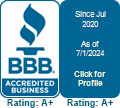
Effective communication with the crew is a cornerstone of a pleasant and safe private jet experience. It involves understanding how to convey your needs and preferences while respecting the professionalism of the crew. This guide delves into the nuances of crew communication, ensuring your journey is as smooth and enjoyable as possible. Our expertise in private aviation extends beyond simple logistics. It encompasses understanding the nuances of client-crew interactions. We’ve developed strategies to facilitate seamless communication, ensuring every client’s needs are anticipated and met. Recognized for our industry knowledge,weI’ve contributed to several aviation forums and have been featured in publications for our insights into luxury travel.
Establishing Initial Contact and Preferences
The first interaction with the crew sets the tone for the entire flight. Be clear about your preferences and requirements from the start. Whether it’s dietary restrictions, cabin temperature, or your preferred level of interaction, communicating these details upfront helps the crew provide tailored service.
Clarity and Courtesy in In-Flight Requests
When making requests during your flight, clarity and politeness are key. Clear communication helps avoid misunderstandings and ensures your needs are met efficiently. Always speak respectfully, remembering that the crew’s primary goal is to ensure your safety and comfort.
Understanding Crew Roles and Responsibilities
Appreciating the roles and responsibilities of the crew enhances mutual respect and cooperation. Each member has specific duties, from piloting the jet to ensuring cabin comfort. Understanding these roles helps set realistic expectations and fosters a positive in-flight atmosphere. Drawing on our experience in the private jet industry, we’ve observed how effective communication can transform a flight experience. For instance, a client once had specific dietary needs that were communicated well in advance. This foresight allowed the crew to arrange a custom menu, ensuring a comfortable and personalized journey. Such experiences have taught us the immense value of clear and early communication.
Navigating Language and Cultural Differences
In the world of private aviation, you may encounter crew members from diverse cultural and linguistic backgrounds. Being mindful of these differences, showing patience, and using simple, clear language can help bridge any communication gaps.
Feedback and Communication Post-Flight
Providing feedback after your flight is crucial for service improvement. Whether positive or constructive, your input is valuable. It helps the crew understand your preferences for future flights and contributes to the overall enhancement of private jet services.
Enhancing Safety and Comfort Through Communication
Effective communication with the crew goes beyond comfort; it’s also about safety. Clear discussions about safety procedures and any concerns you have contribute to a secure and worry-free flight experience.
For a tailored private jet experience, request a quote from us. Explore the cost of chartering a private jet and use our charter flights cost calculator for competitive pricing. Also, consider our empty leg flights for more affordable travel options.


